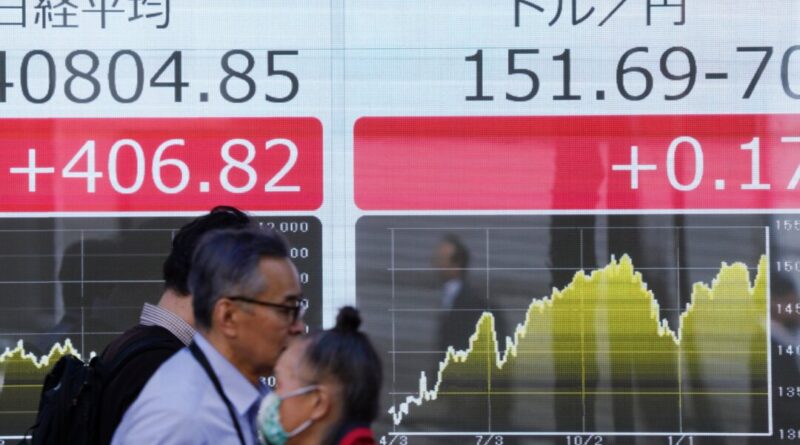The Japanese Yen Hits a 34-Year Low in Value Compared to the US Dollar
Former President Donald Trump has raised concerns about the depreciation of the yen.
Japan’s yen hit a 34-year low against the U.S. dollar on April 26 due to economic conditions and central banks’ monetary policies.
In the New York foreign exchange market, the yen briefly dropped to 158.44 yen per U.S. dollar, its lowest level since May 1990.
The global market reacted strongly to this development, with former President Donald Trump expressing worries about the yen’s devaluation and its potential impact on the U.S. economy.
The yen’s depreciation against the U.S. dollar was influenced by two main factors.
Firstly, the Bank of Japan announced its plan to maintain its loose monetary policy.
Secondly, the PCE Price Index in the United States rose by 0.3 percent in March, impacting inflation and potentially leading to delayed interest rate cuts by the Federal Reserve.
Expectations of delayed interest rate cuts by the Federal Reserve due to strong inflationary pressures are contributing to the yen’s decline against the U.S. dollar, driven by a significant interest rate differential between the two currencies.
Since the beginning of 2024, the yen has depreciated by 10 percent against the U.S. dollar, making it the worst-performing currency among G10 currencies.
Japan’s Monetary Policy
During the monetary policy meeting on April 26, the Bank of Japan unanimously decided to maintain its near-zero interest rate policy and continue purchasing government long-term bonds.
Bank of Japan’s governor, Kazuo Ueda, mentioned that the recent yen depreciation has not significantly impacted prices but the currency continued to weaken due to the lack of proactive rate hikes by the bank.
The bank revised its inflation rate forecasts for 2024 and 2025, attributing the changes to factors like rising oil prices and increased electricity costs.
Japanese Finance Minister Shunichi Suzuki hinted at potential government intervention in the market to monitor trends and ensure stability.
Benefits to Japan’s Export Industries
The yen’s depreciation benefits Japanese exporters, leading to increased profits for companies like Honda and Toyota, while import-reliant firms may face challenges.
Exchange rate fluctuations are common economic occurrences, impacting businesses in various ways.
President Trump voiced concerns about the yen’s rapid depreciation affecting U.S. manufacturers and proposed strategies to address the issue.
He emphasized the importance of maintaining competitiveness and avoiding manufacturing plant relocations overseas due to unfavorable exchange rates.
President Trump’s advisers are reportedly drafting proposals to reduce the Federal Reserve’s independence to have more control over monetary policy decisions.
Mr. Powell’s term as Federal Reserve chairman is set to expire in May 2026, with President Trump expressing dissatisfaction with his performance during his presidency.



